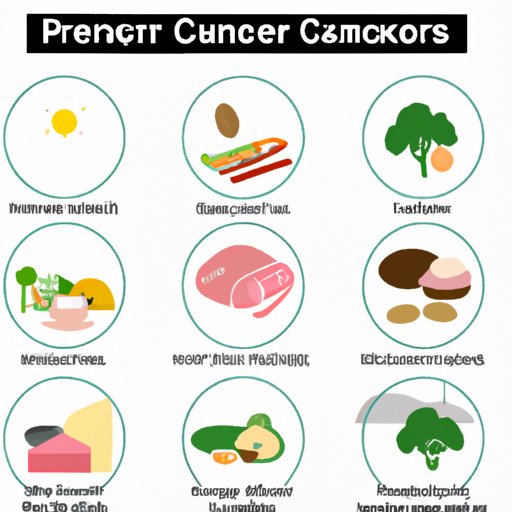

Starving Cancer: A Guide to Fighting Cancer through Diet and Lifestyle Choices
Cancer is a major problem in society today. It is a leading cause of death worldwide, and millions of people are diagnosed with different types of cancers each year. A cancer diagnosis can be life-changing, and can affect not only the physical health but also the emotional well-being of the affected individual and their families. Fortunately, there are some simple changes in our diet and lifestyle habits that can help reduce the risk of cancer and even starve cancer cells. This article provides an overview of some of the most effective tips and ideas for preventing and combating cancer.
The benefits of a ketogenic diet
The ketogenic diet is a high-fat, low-carb, and moderate-protein diet that has been shown to have multiple benefits for overall health and well-being. The basic idea behind this diet is that by switching the body’s primary fuel source from carbohydrates to fat, it can lead to a process called ketosis. During ketosis, the liver starts to produce ketones, which are molecules that can fuel the body instead of glucose.
There is some evidence that suggests that cancer cells thrive on glucose, leading to the hypothesis that a ketogenic diet could help to starve cancer cells by reducing their sources of fuel. And while research in this area is still in the early stages, there is some promising evidence that suggests that a ketogenic diet could be a powerful tool for those fighting cancer.
To follow a ketogenic diet, focus on foods that are high in fat and low in carbohydrates. Some examples of foods that are ketogenic include meat, fish, eggs, cheese, butter, nuts, and seeds. Avoid foods that are high in carbohydrates, such as grains, sugars, and starchy vegetables.
The importance of exercise
Exercise is essential for overall health and well-being, and it can also help to reduce the risk of developing cancer. Research has shown that regular exercise can help to reduce the risk of several types of cancers, including breast and colon cancer. Exercise can also improve the effectiveness of cancer treatments and reduce negative side effects such as fatigue, anxiety, and depression.
To incorporate exercise into your routine, start by setting realistic goals. Aim for at least 30 minutes of moderate-intensity exercise per day, such as brisk walking, swimming, or cycling. If you are already receiving cancer treatments, talk to your healthcare provider about the types and intensity of exercises that are safe for you.
The role of antioxidants
Antioxidants are molecules that can help to protect the body from damage caused by free radicals, which are unstable molecules that can damage cells and contribute to cancer growth. Incorporating foods that are high in antioxidants into your diet can help to reduce the risk of cancer and improve overall health and well-being.
Some foods that are high in antioxidants include berries, nuts, beans, dark chocolate, and leafy green vegetables.
The potential benefits of fasting
Fasting is the practice of abstaining from food for a certain period of time. There is some evidence that suggests that fasting can help to reduce the risk of cancer and improve outcomes in cancer patients. During fasting, the body enters a state of ketosis, similar to the ketogenic diet. Fasting may help to starve cancer cells by reducing their sources of fuel. Additionally, fasting has been shown to improve the body’s immune response and reduce inflammation, which can contribute to cancer growth.
To incorporate fasting into your routine, start slowly and gradually increase the duration of your fasts over time. Talk to your healthcare provider before beginning any fasting regimen, and make sure to stay well-hydrated during fasting periods.
The dangers of processed foods
Processed foods are often high in sugar, unhealthy fats, and artificial additives. These foods have been linked to many health problems, including cancer. Processed foods can disrupt the body’s natural hormone balance, increase inflammation, and contribute to insulin resistance, all of which can contribute to cancer growth.
To reduce your intake of processed foods, focus on eating whole foods that are minimally processed. Choose fresh fruits and vegetables, whole grains, lean proteins, and healthy fats such as olive oil and avocado.
The power of mindfulness
Mindfulness is the practice of being present and fully engaged in the current moment. It can help to reduce stress and inflammation in the body, which can contribute to cancer growth. Incorporating mindfulness techniques such as meditation and deep breathing into your daily routine can help to improve overall well-being and reduce stress and anxiety.
To get started with mindfulness, set aside a few minutes each day to practice deep breathing or meditation. There are many free resources available online that can guide you through meditation exercises.
How sleep affects cancer risk
Sleep is essential for overall health and well-being, and it can also reduce the risk of cancer. Studies have shown that disrupted sleep patterns can increase the risk of several types of cancers, including breast and prostate cancer. Good sleep hygiene is essential for maintaining a healthy sleep cycle.
To improve your sleep hygiene, try to maintain a regular sleep schedule, avoid caffeine and alcohol before bedtime, and create a relaxing bedtime routine. Avoid using electronic devices such as phones or laptops in bed, as these can disrupt sleep patterns.
Conclusion
Cancer is a serious problem in society today, but there are some simple changes in our diet and lifestyle habits that can help reduce the risk of cancer and even starve cancer cells. By following a ketogenic diet, incorporating exercise, eating foods high in antioxidants, fasting, reducing processed food intake, practicing mindfulness, and improving sleep hygiene, you can take proactive steps to prevent and combat cancer. Take action today, and start making positive changes to live a healthier life.





